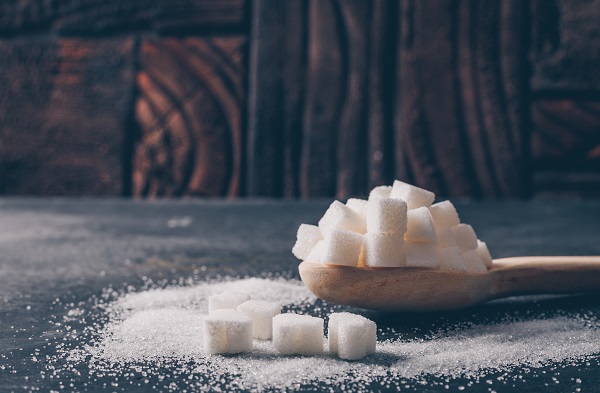Contributed by – Healthians Team
The Actualities behind Artificial Sweeteners
These days’ artificial sweeteners and other sugar substitutes are commonly found in a variety of food and beverages, including soft drinks, chewing gum, jellies, baked goods, candy, fruit juice, ice cream and yogurt. Marketed as “sugar free” or “diet option”, these artificial sweeteners have found a special place in our tea-loving country as the perfect substitute for sugar, added fondly every time one sips a cup of tea. Artificial sweeteners give a person the same pleasure as sugar but minus the calories and the dangerous consequence of sugar on insulin signalling and triglyceride formation. But, are these popularly marketed sweeteners the right choice?
Artificial Sweeteners: What are they?
Sugar substitutes are lightly considered as any sweetener that is used instead of the regular table sugar we use.
Artificial sweeteners are the most striking and commonly used alternatives to sugar. The reason behind this are they add nearly no calories in the diet. In addition, for the same level of sweetness, only a fraction of it is used as compared to sugar. They are anywhere from 30 to 8,000 times sweeter than sugar and hence have much fewer calories than foods made with table sugar. Each gram of refined table sugar contains 4 calories, on the other hand many sugar substitutes have zero calories per gram. This makes it a popular choice for diabetics and people looking for weight loss.
They are most commonly used in processed foods, including baked goods, soft drinks, powdered drink mixes, candy, puddings, canned foods, jams and jellies, dairy products, and scores of other foods and beverages.
Artificial sweeteners are just one type of sugar substitute. The FDA approved artificial sweeteners are:
- Saccharin
- Acesulfame
- Aspartame
- Neotame
- Sucralose

Artificial Sugars: The Facts!
Artificial sweeteners are not magic bullets, smart use of these non-nutritive sweeteners could help a person in reducing the added sugars in their diet, therefore lowering the number of calories a person eats.
Though, it may seem that natural sugar substitutes are much healthier than the processed table sugar, their vitamin and mineral content isn’t significantly different from that of sugar. Honey and sugar, for instance, are nutritionally similar, and both end up in the body as glucose and fructose.
Maximum people think that they are well-aware of these “healthy” sugar free sweeteners. But the truth is and an ugly one is that there are scientifically proven data that shows the dangers and unproven safety of these sweeteners. Even the most readily used sugar free tablets have side effects.
The top 10 dangers of artificial sweeteners are:
- Migraines
- Obesity
- Addiction
- Dull taste buds
- Change in vision
- Nausea and vomiting
- Hormonal imbalance
- Insomnia / sleep problems
- Increased hunger/ overeating
- Abdominal and joint pains
- Allergic reaction
- Type 2 diabetes
More severe side effects of artificial sweeteners are:
- Change in heart rate
- Depression
- Memory loss
- Seizure
- Brain cancer
Apart from these, most of the people do not realize that artificial sweetener can also lead to dangerous addiction — an addiction to an overly sweet foods. They will retrain the taste buds to need more and more, sweeter and sweeter foods. This could eventually lead to even greater incidences of obesity, type 2 diabetes, kidney damage and many more health related issues.
Most of these artificial sweeteners and flavour enhancers break down into highly toxic chemical agents that can damage the important regions of the body.

Where do these Artificial Sweeteners hide?
Most people are not well-aware of how harmful these artificial sweeteners are and what the long term side effects of artificial sweeteners on the body can be. They are found everywhere, sometimes hidden and sometimes in the open, as when one uses sugar free tablets directly.
Here are few examples of food items and edibles that contain artificial sweeteners:
- Toothpaste and mouthwash
- Children’s chewable vitamins
- Candies
- Chewing gum
- Cough syrup and liquid medicines
- No-calorie waters and drinks
- Alcoholic beverages
- Salad dressings
- Frozen yogurt and other frozen deserts
- Baked goods
- Yogurt
- Breakfast cereals
- Processed snack foods
- “Lite” or diet fruit juices and beverages
- Prepared meats
- Nicotine gum
Surprised? Did you see few names which you never suspected contained artificial sweeteners? It is hence very important to carefully read the labels of the products before purchasing them!

To Sweeten or Not to Sweeten?
The fact is that foods that are available in the market with the tag “sugar free” does not always mean they are free of calories. Now the question arises: can they really help people shed extra weight? What role should they play in person’s diet- if any?
If a person eats too many sugar free foods, they can still gain weight if the food item contains other ingredients that are calorie loaded or may face other health complications. For example, let us take the case of diet soda or diet coke that contain sugar substitutes instead of sugar. The sugar substitute can lower one’s risk of tooth decay, but the acid in diet soda could contribute to dental erosion. Similarly, knowing that the cookies are made from sugar substitutes, one may overeat. Though the sugar intake will be controlled, the consumption of total calories and carbohydrates will do more harm than good.
The natural from of sugar is not really bad. Foods containing sugar that is in their natural form, like whole fruit, for example, are highly nutritious: nutrient rich, high in fibre, and low in glycaemic load.
To satiate the sweet calling, let’s go back to the natural source of sugar but with a warning: eat in moderation.




